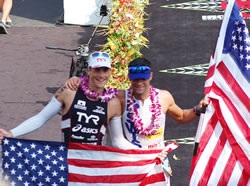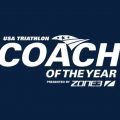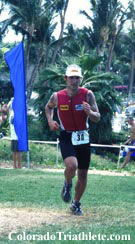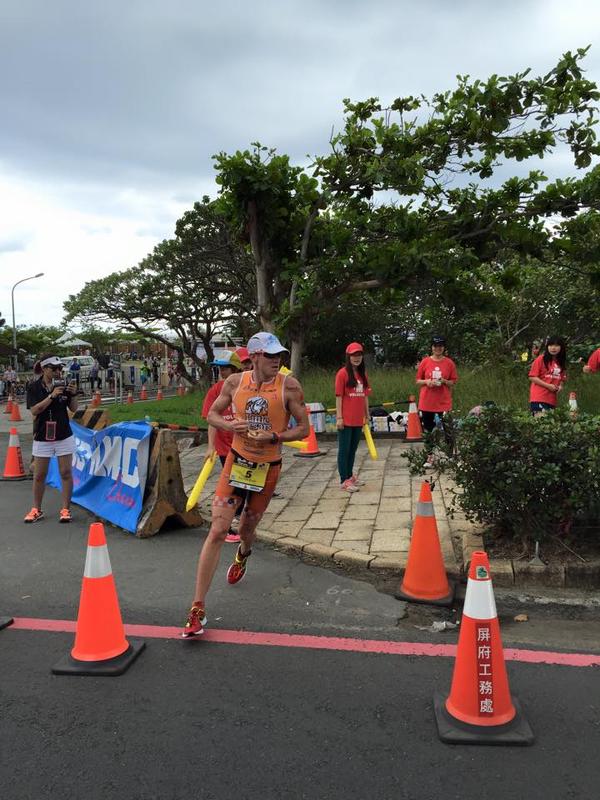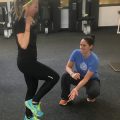Millward Runs into Fourth in Geelong
Our Cupcake King had a nice first race of the season in a solid field at IRONMAN 70.3 Geelong this past weekend. The Kiwi-native posted a time of 3:56:27 and turned in the fastest run split of the day, 1:17:26. According to his Facebook page, a swift blow to the ear in the swim made for a tough day in tough conditions. It doesn’t seem like it bothered him too badly as he finished fourth on the day. Way to go, Mr. Millward!
Strengthen Your Training with Boulder’s Best
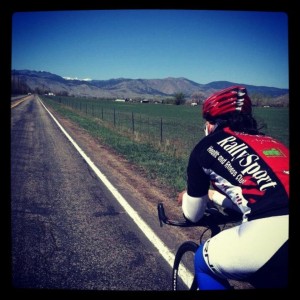
In any article you read about the “best city for triathletes to train,” Boulder is usually at the top. Not only is the city cyclist friendly and the altitude great for overall fitness, but Boulder holds the secret weapon for many of the top pro triathletes. Make that two secret weapons: Erin Carson, owner of Rallysport Health & Fitness Club owner, and Amy Quirion. They are two of the best strength coaches around and can prove it with their “who’s who” list of triathlete clientele. They aren’t just great coaches, they are IRONMAN 70.3 World Championship age-group qualifiers whose passion for triathlon resonates in the program they’ve created and use with each athlete. Check out my interview below with Carson as she reveals why the program she and Quirion have devised is imperative for every triathlete!
MEGAN EVOE: Who are some of the pros you both coach regularly throughout the year?
ERIN CARSON: Some of the athletes that we coach include Mirinda Carfrae, Tim O’Donnell, Flora Duffy, Cam Dye, Tim Don, Rachel Joyce, Rebekah Keat, Ben Hoffman, Patrick Evoe, Joe Gambles, Dede Griesbauer, Paula Findlay, and Michelle Mehnert.
EVOE: What led you down the path to becoming a strength coach?
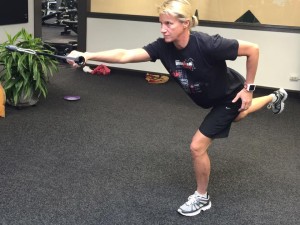
CARSON: Being a strength coach has been part of my world since 1989 in Boulder, Colorado. My undergraduate degree in in kinesiology and my master’s studies were in athletic administration. My current educational support and credentials come from The National Strength and Conditioning Association as a Certified Strength and Conditioning Specialist as well as EXOS Performance. While I coached college basketball (Tulane and Nebraska) I was given the responsibility to oversee all weight room work done by the athletes. The progression to strength coach and endurance specialist really began while working in Boulder and connecting with Tim O’Donnell and Mirinda Carfrae. The foundation of our methodologies come from my work with Tim and Rinny and the success they both have had in our program.
EVOE: What is your approach to training and how is it different from other programs you’ve seen?
CARSON: The title of my next book will be “Triathletes Don’t Need More Exercise.” When we train our endurance athletes we know that we must let go of some of our “traditional” progressions to acknowledge the total amount of work they are doing in their sport. We have to really listen to how the athlete feels and make the decision about which phase of training they really need in that session. We have a systematic approach to our gym sessions that include release techniques and tissue care, mobility, stability, strength, agility and power.
EVOE: Why do you think it’s important that athletes implement strength training into their routine?
CARSON: We think it is important for endurance athletes to take a systematic approach to their gym sessions to (1) ensure tissue care and decrease injury, (2) reinforce optimal movement patterns, which allows for ease of movement, (3) increase joint stability for quickness, (4) increase strength to accommodate increased loading of sport specific training, and (5) develop power to give the athlete the ability to accelerate when the demands of competition require it.
EVOE: What kinds of trends have you seen in your industry over the years?
CARSON: Most of the trends that we have seen have endurance athletes train with light weights and high repetitions or attend “crossfit-like” workouts. We don’t employ either of these strategies.
EVOE: What’s your approach when it comes to training triathletes specializing in different distances?
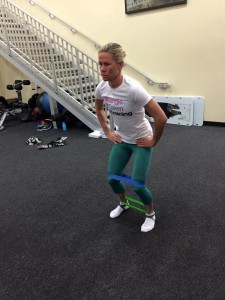
CARSON: There is a definite distinction between how we train an ITU athlete vs. an IRONMAN athlete, but because all of our athletes must demonstrate a strong foundation of mobility, stability and strength we only separate the different athletes when they are in season. Our ITU athletes experience more power and acceleration based sessions.
EVOE: Give us an example of a typical strength workout with a triathlete.
CARSON: A typical workout with our athletes begin with some time dedicated to using foam rollers then move towards unloaded three dimensional movements. If we like the way our athletes are moving, we progress to some balance challenges and single leg/arm work. Depending on the time of year we may then incorporate some specific strength work. We are extremely careful with who and when our athletes are loaded with heavy loads. We are constantly calculating risk vs. reward. To give you an example, although we are excited to load our athletes, it sometimes can take up to a year before we are satisfied with the mobility and stability to train pure strength. That doesn’t mean that the athlete couldn’t lift the heavier weights, it just means how they would move the load may put them at risk. We never want to impose on our athlete’s ability to train for their sport because they were injured in the weight room.
EVOE: Any final thoughts?
CARSON: We are truly humbled by the opportunity to work with the caliber of athletes that we are entrusted to work with. To have the confidence of some of the top coaches in the sport of triathlon is something we take very seriously. We are excited to have created an online program for those athletes who do not live in Boulder. The programs are available through our website http://www.ecfitboulder.com.

